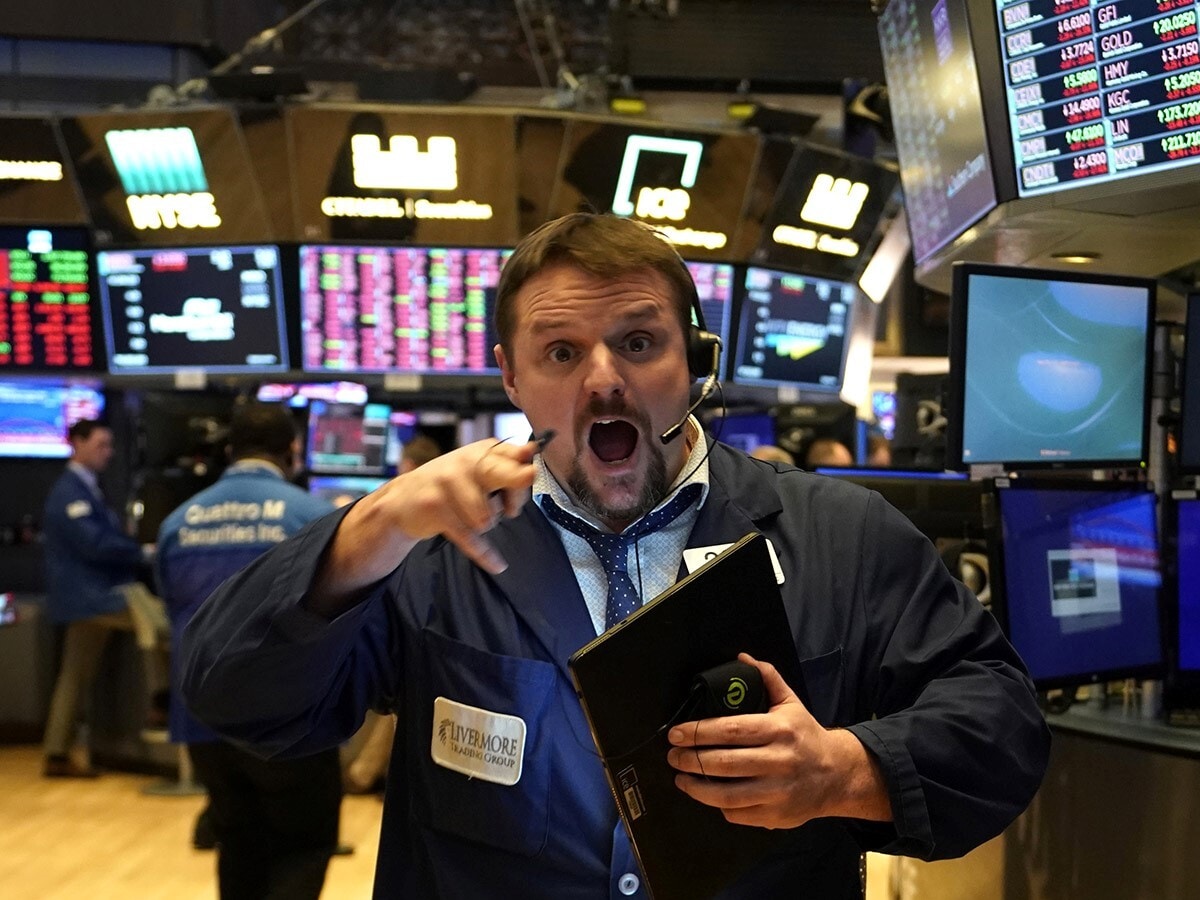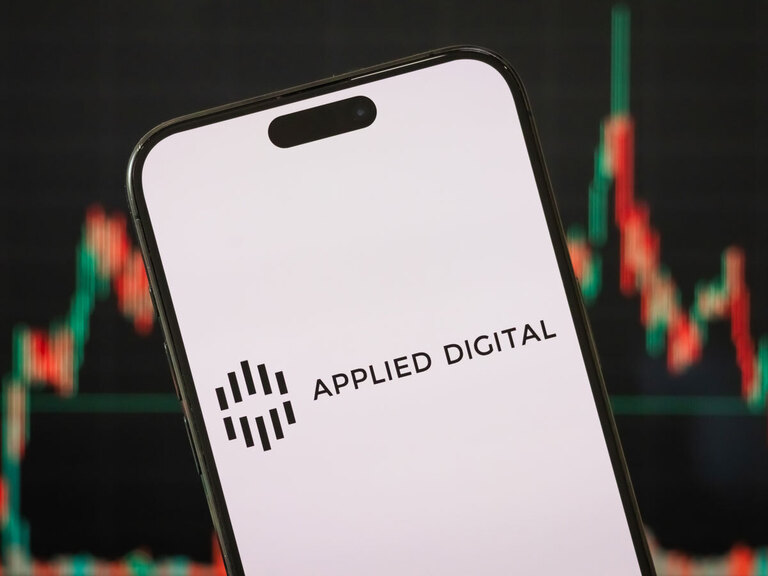As we look back on 2021, here are five key moments that impacted the markets this year, and what this could mean for 2022.
GameStop stock surge
The year started with a bang. Retail traders clashed with Wall Street investors in an attempt to squeeze out short sellers and send the share prices of GameStop [GME] and AMC Entertainment [AMC], along with around a dozen other stocks, soaring. It left hedge funds that scrambled to cover short positions facing combined losses of $12bn.
The rollercoaster ride lasted a couple of months and briefly caused worries for the broader market, but it quickly rebounded.
According to a Securities and Exchange Commission report published in October, this was more than just a short squeeze. “The price and volume movements in GameStop coincided with substantial interest expressed in certain online forums devoted to investing, including YouTube channels and the subreddit WallStreetBets,” the SEC wrote. “It was the positive sentiment, not the buying-to-cover, that sustained the weeks-long price appreciation of [GameStop].”
While retail investors can’t move markets, the event has shown how their behaviour can influence stock prices.
Vaccine rollout
The stock markets entered 2021 with the wind behind them. The first vaccines started to be administered in both the UK and US in December 2020. Confidence in successful rollouts gave investors a boost. On the first trading day of the year, European markets, the S&P 500 and the Dow Jones Industrial Average hit record highs at the opening.
Optimism was always going to be short-lived, though, given the complexities involved in trying to get whole populations vaccinated. The S&P 500 and Dow Jones Industrial Average closed lower on 4 January than they had done on 31 December.
In analysis posted in April, Jefferies analysts wrote: “We believe the US population [will likely] be about 60% vaccinated by the end of this year, limited by hesitancy of many.” As of 18 December, data from Mayo Clinic shows 61.6% are fully vaccinated.
“We believe the US population [will likely] be about 60% vaccinated by the end of this year, limited by hesitancy of many” - Jefferies analysts
Science and health experts seem to agree that herd immunity through vaccination is the best way to stop the spread of a virus. Unfortunately, six in 10 people aren’t enough to build up herd immunity, the Jefferies analysts stressed.
The emergence of Omicron
“One big question,” Jefferies analysts added, “is how long before the [COVID-19] virus has mutated to an extent that our current vaccines do not work.”
The emergence of Omicron and uncertainty around the efficacy of existing vaccines against the variant has spooked global markets. Amid fears of potential future lockdowns and a spike in hospitalisations and deaths, the S&P 500 and FTSE 100 are just two of the indices that have been trading lower over the last couple of weeks.
Omicron has dampened festive spirits, leaving experts split on whether there will be a Santa rally heading into 2022. “Historically, today is the day the Santa Claus rally starts. It worked even during 2007-2009. So it is hard to doubt,” tweeted Jim Cramer on 21 December. But in an interview with CNBC the day before, PNC Financial’s CIO Amanda Agati said that the uncertainty has lowered investors’ appetite for risk and their focus will be on profit-taking.
Pharmaceutical companies AstraZeneca [AZN.L], Moderna [MRNA], Pfizer [PFE] and Novavax [NVAX] are researching how their vaccines can be tweaked to provide adequate protection from the variant. There is a sprint ongoing to develop and produce doses by March 2022.
The chip crunch and a shortage of electronics
The holiday season is usually when you’d expect to find deals on electronics, but the PlayStation 5 and iPhones have been in short supply due to scarce availability of semiconductors.
In Q4 2021, Apple [AAPL] failed to surpass earnings expectations for the first time since 2016. While revenue was up 29% year-over-year, the company incurred a $6bn loss due to chip-related supply chain constraints. It indicated that increasing wait times could result in the semiconductor shortage having an impact on the bottom line through 2024.
Many semiconductor foundries have been focusing their attention on automakers, which offer a far higher margin than the electronics industry. Despite the crisis, some chipmakers have been outpacing the broader market. The PHLX Semiconductor index [SOX] is up 37.98% year-to-date through 21 December. The Nvidia [NVDA] share price has gained 122% in the same period.
Stimulus Tapering
The emergence of omicron could give the US Federal Reserve a headache when it comes to speeding up its tapering that kicked off in November. As it stands, it’s expected to drastically reduce asset purchasing to $60bn a month, from $90bn in December and $120bn pre-November.
Although the start of tapering didn’t cause a tantrum like it did in 2013, there’s been plenty of uncertainty and this has contributed to volatile stock market movements. Growth stocks, in particular, have pulled back.
With the Federal Reserve signalling in early December that interest rates could rise as early as March 2022, US equities are likely to see only muted gains in the first part of the year.
Disclaimer Past performance is not a reliable indicator of future results.
CMC Markets is an execution-only service provider. The material (whether or not it states any opinions) is for general information purposes only, and does not take into account your personal circumstances or objectives. Nothing in this material is (or should be considered to be) financial, investment or other advice on which reliance should be placed. No opinion given in the material constitutes a recommendation by CMC Markets or the author that any particular investment, security, transaction or investment strategy is suitable for any specific person.
The material has not been prepared in accordance with legal requirements designed to promote the independence of investment research. Although we are not specifically prevented from dealing before providing this material, we do not seek to take advantage of the material prior to its dissemination.
CMC Markets does not endorse or offer opinion on the trading strategies used by the author. Their trading strategies do not guarantee any return and CMC Markets shall not be held responsible for any loss that you may incur, either directly or indirectly, arising from any investment based on any information contained herein.
*Tax treatment depends on individual circumstances and can change or may differ in a jurisdiction other than the UK.
Continue reading for FREE
- Includes free newsletter updates, unsubscribe anytime. Privacy policy





